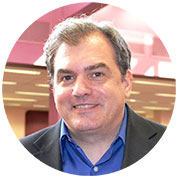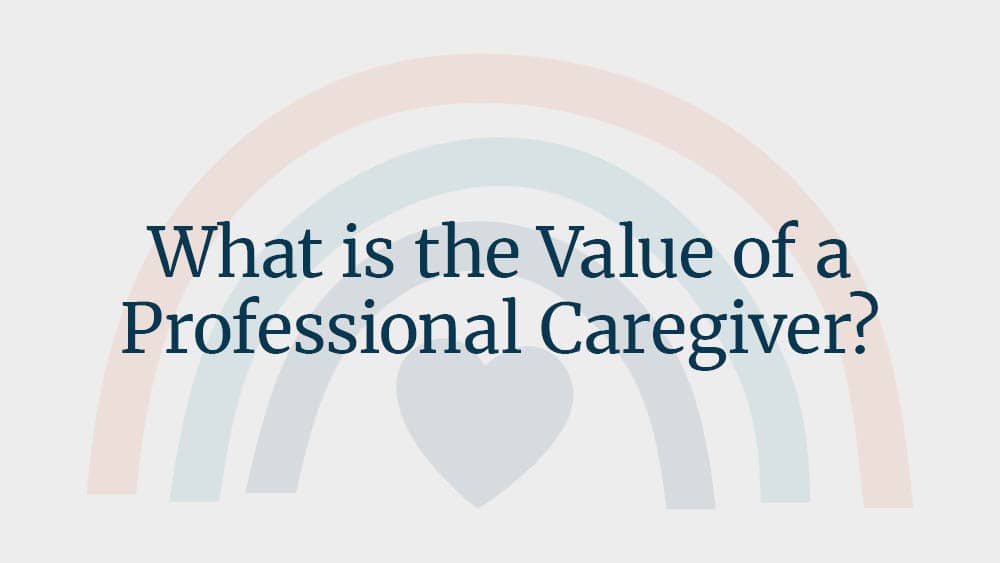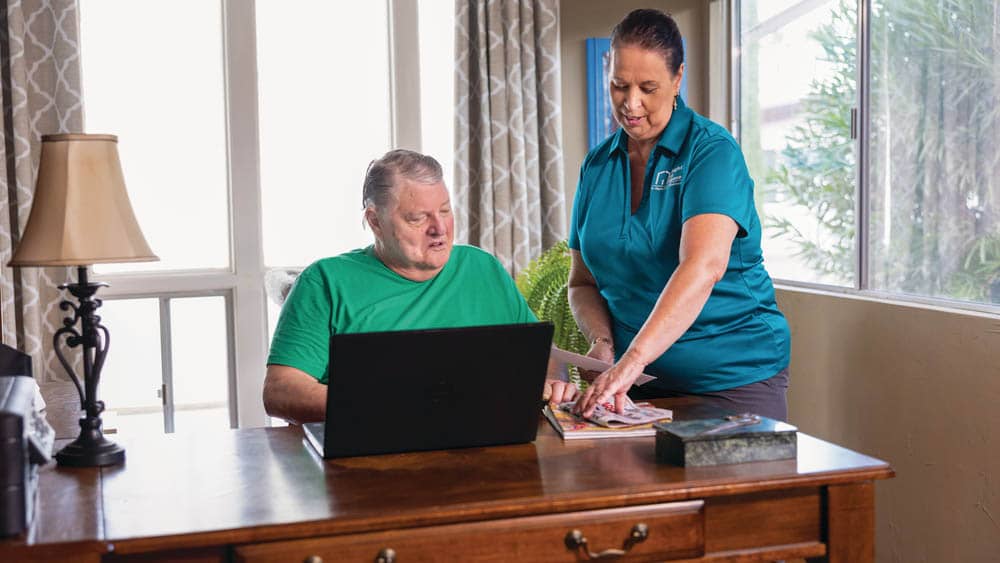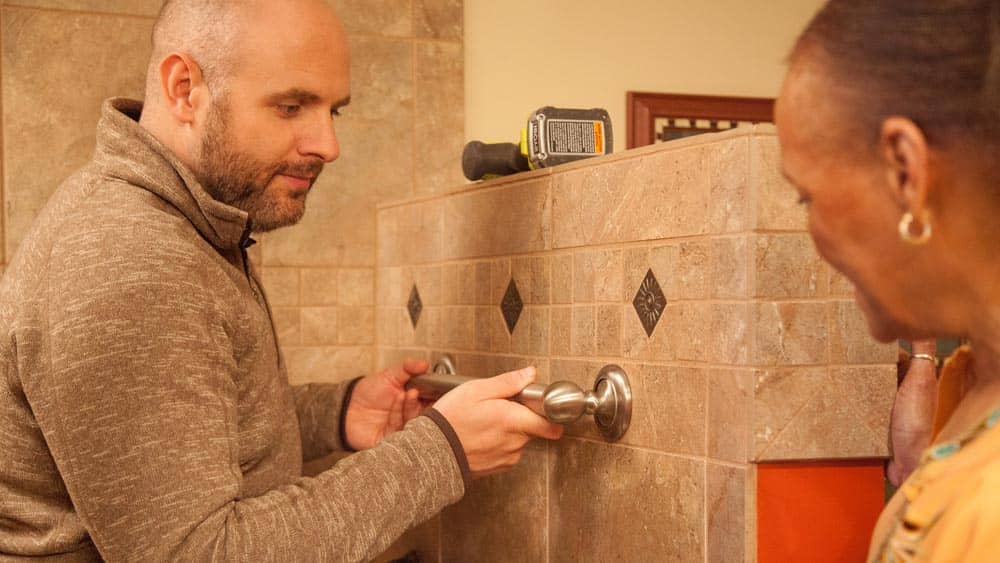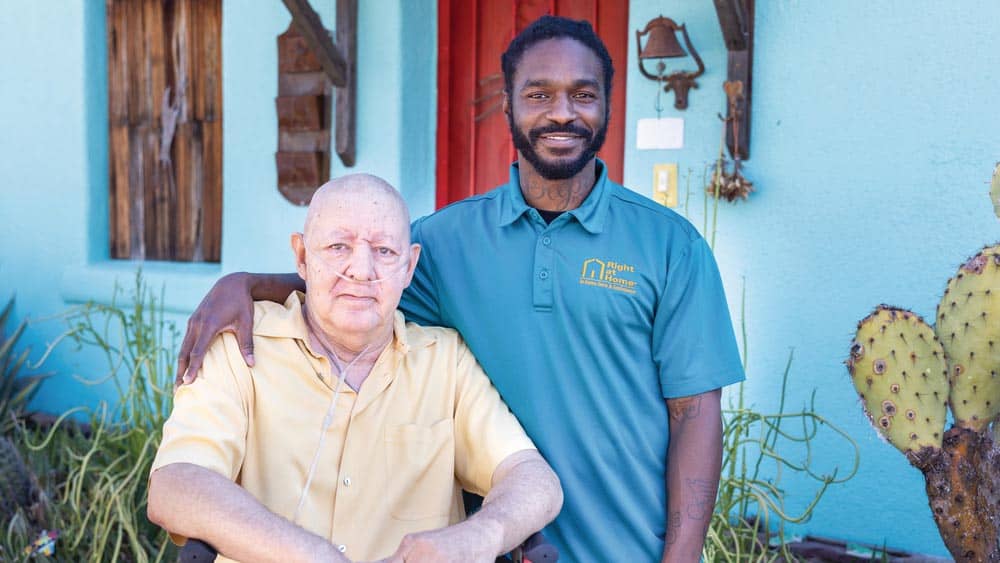
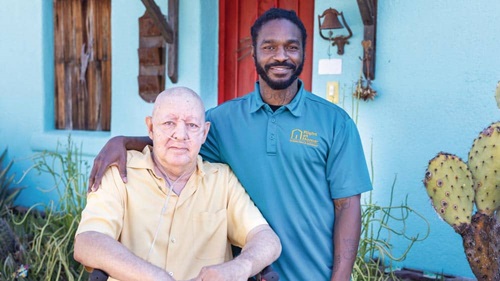
With a Little Help From Caregivers, Seniors Can Stay Sharp in Mind and Body
Caregivers are uniquely positioned to help older adults stay mentally spry. That’s important because experts agree that a sound mind contributes to a healthy body. Accentuating these mind-body dimensions within an overall healthy lifestyle can improve the quality of life and help ensure positive health outcomes for folks over age 65.
The Role Family Caregivers Can Play
The axiom “use it or lose it” is true. A family caregiver, with the advice of medical professionals, is important in educating and encouraging an older adult to think of their mind and body as a machine. Without proper care and maintenance, the mind and body are prone to weaken and can be more susceptible to breaking down. A trusted family member can act as a caregiver and help their older loved one follow through on a wellness regimen that optimizes the senior’s health. Jointly, they can work to make healthy habits a priority.
Professional Caregivers Can Help, Too
Most seniors want to live out their golden years in the comfort of their homes. But when aging in place, some kind of in-home support or care may inevitably be needed, whether by family, friends, or professional home care aides.
Professional home care aides, or caregivers, have been trained to help seniors with the activities needed to live at home safely. They can engage seniors in conversation and help them not feel isolated. Visiting during a meal is a simple way to make someone feel valued and connected, which is a key factor in emotional health. This is important as experts say emotional well-being is tied to cognitive health.
If the older person has family and friends who don’t live nearby, the caregiver can encourage them and, as needed, assist them with staying connected via in-person, phone, Zoom, and FaceTime visits.
Professional caregivers can also encourage physical exercise or activity, which is another key to healthy aging and reducing the risk of physical and mental decline. Exercise can be as simple as taking a walk through the neighborhood, a park, or a mall. A good workout can be done sitting in a chair, stretching in bed, or on the floor. Even gardening and household chores count as exercise.
More holistically, professional caregivers can help ensure seniors eat right, follow dietary restrictions, take medications consistently and correctly, and live in a safe, enriching environment. They can also help with personal care services such as hygiene, dressing, and moving about the home.
Eat, Sleep, and Medicate Right
Whether help is provided by a family member or professional caregiver, one thing is certain: Diet and sleep are two basic yet often overlooked contributors to good health. Here are tips to consider:
- A Mediterranean diet has been recommended by doctors for not only heart health but brain health, too. Consuming too many fatty, sugary, high-sodium foods can clog arteries, impede metabolism, and dull the senses. Poor diet and obesity are risk factors for high blood pressure, stroke, heart attack, and diabetes.
- Chronic sleep deprivation is tied to various illnesses. It contributes to cognitive issues such as brain fog, reduced attention span, and trouble learning new information. Proper sleep can boost memory recall, reduce mental fatigue, and regulate mood.
- Medication mismanagement can cause cognitive confusion and a host of other problems. A caregiver can help monitor a senior’s prescription medications to ensure proper dosing and can report problems.
Staying Active in Mind and Body
Finding ways to reduce stress is important because chronic stress is toxic to the mind and body. Exercise is a good stress reliever for many people, and so is music, painting, drawing, gardening, and a million other things. Activities that require focus, problem-solving, and creativity can be thought of as mental workouts. They can improve brain function and help prevent age-related degenerative diseases.
There are many brain exercises older people can do themselves to keep mentally acute, but some things can be fun to do with others. For example, seniors and caregivers can try doing the following things together:
- Meditation, tai-chi, yoga
- Gardening
- Charades
- Trivia contests
- Playing board games, chess, checkers, cards
- Playing video games
More solitary but no less stimulating pursuits include:
- Reading
- Journaling, letter-writing, or any kind of writing
- Playing a musical instrument
Things seniors can do alone or with a caregiver include:
- Listening to music
- Doing crossword or jigsaw puzzles
- Learning new hobbies or practicing old ones
- Painting, drawing, dancing
- Knitting, embroidery
- Scrapbooking
- Learning a new language
- Learning how to use devices or apps
Just Find Something and Jump In
Studies show that learning new things or attempting new activities keeps the brain fine-tuned, which can help seniors maintain autonomy and independence.
A caregiver might recommend things for the senior to do based on their interests, such as joining a book or movie club, listening to podcasts, or volunteering at a school or community center.
Being active is the point. Anything that requires thinking and promotes engagement can strengthen and preserve synapse connections and make the brain more resistant to age-related or other diseases. Better yet, make it a daily habit to keep your brain sharp as you age.
How Right at Home Can Help
Right at Home’s professional in-home caregivers provide services that support the physical and mental health of senior clients. In addition to helping complete daily life and self-care tasks, they fulfill other needs, such as providing transportation to physician appointments, grocery shopping, meal planning and preparation, and keeping seniors engaged in the social, emotional, and mental stimulation needed to maintain well-being.
To find out more, use our office locator to call the office nearest you and speak to an aging expert. They can help you determine which services will help your loved one and conduct a FREE in-home care consultation.
Interested in receiving monthly tips, information, and advice about caring for an aging loved one? Subscribe to our Caring Right at Home e-newsletter today.




